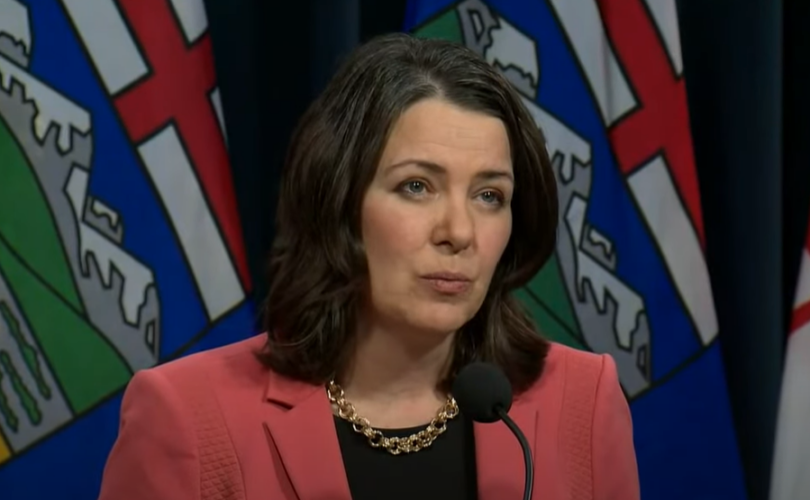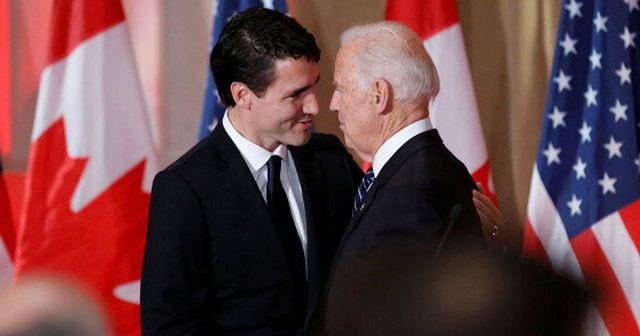Business
Shell scales back emissions goals, says cutting oil and gas production is ‘not healthy’
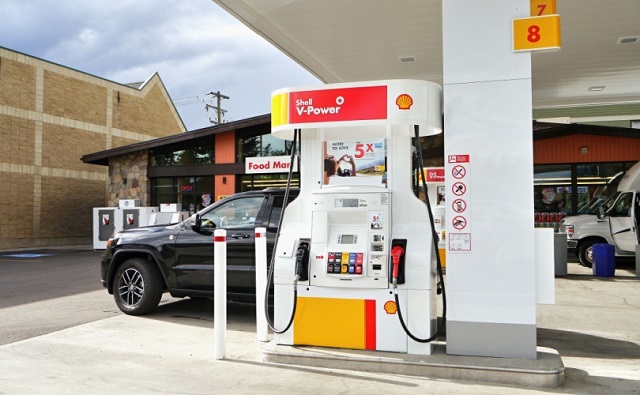
From LifeSiteNews
The company’s report mentions that its 2035 ‘net carbon intensity’ target has been ‘retired’ due to ‘uncertainty in the pace of change in the energy transition.’
Shell, a major oil and gas supplier in Canada whose federal government has openly called for the end of fossil fuels, announced that it will not meet its planned 2035 emissions targets.
Wael Sawan, the Anglo-Dutch company’s Canadian CEO, noted in Shell’s latest “energy transition strategy” update that “We believe the world will continue to need oil and gas for many years.”
The company had set a target to reduce its so-called ‘net carbon intensity’ to 20% by 2030 but revised the goal to 15%.
Shell said that “cutting oil and gas production,” the objective of the Canadian government, “is not healthy” for the global energy system.
Shell’s report mentions that its 2035 target has been “retired” due to “uncertainty in the pace of change in the energy transition.”
The company still says it has a net-zero target by 2050, but this is not set in stone because “if society is not net-zero in 2050,” then there would be a “significant risk that Shell may not meet this target.”
Shell plans to increase its LNG production by 30%. “Investment in oil and gas will be needed because demand for oil and gas is expected to drop at a slower rate than the natural decline rate of the world’s oil and gas fields, which is 4-5% a year,” the company said.
Other major oil and gas producers such as ExxonMobil, BP, and Canadian company Suncor have all scaled back their own emissions reduction plans.
Faced with the realities of a consumer-driven market and without government interference such as rebates or mandates, studies show that people prefer gas-powered cars over electric vehicles, which are being touted by governments as the saviors to solving what they claim is a “climate change” crisis.
Despite this, Canadian Environment Minister Steven Guilbeault in December 2023 announced the “Electric Vehicle Availability Standard.” The plan is to mandate that all new cars and trucks by 2035 be electric, which would in effect ban the sale of new gasoline- or diesel-only powered vehicles after that year.
Trudeau’s government is trying to force net-zero regulations on all Canadian provinces, notably on electricity generation, as early as 2035. Alberta is adamantly opposed.
Natural gas and coal are abundant in Canada, notably in Alberta, a province in which Shell has a major presence. In the new year, an extreme cold snap sent temperatures plummeting to nearly minus-50 degrees Celsius (minus-58 degrees Fahrenheit) in much of western Canada. It was so cold that the province of Alberta’s power grid almost collapsed due to a failure of wind and solar power.
Alberta Premier Danielle Smith has been a fierce opponent of Trudeau’s green energy agenda. Earlier this month, she said her province will continue to rely on carbon-based fuel sources for power generation for decades to come after introducing sweeping new regulations restricting the development of so-called “renewable” energy generation from wind turbines and solar farms, saying these types of technologies are not the “silver bullet” the federal government claims they are for power generation.
The Trudeau government has gone as far as to say they will not fund new road projects, all in the name of “climate change,” as was reported by LifeSiteNews last month. Both Smith and Premier Doug Ford of Ontario tore into Guilbeault after he said the federal government would no longer fund any road construction projects and instead funnel the savings to “climate change” projects that promote people walk instead of drive.
Smith has been battling the minister for the last few months over his extreme climate change policies that seek to destroy Alberta’s oil and gas sector.
The reduction and eventual elimination of the use of so-called “fossil fuels” and a transition to unreliable “green” energy has been pushed by the World Economic Forum (WEF) – the globalist group behind the socialist “Great Reset” agenda – an organization in which Trudeau and some of his cabinet are involved.
Canada has the third largest oil and gas reserves in the world, with most of it in Alberta. However, since taking office in 2015, Trudeau has continued to push his radical environmental agenda similar to the agendas being pushed the WEF’s “Great Reset” and the United Nations’ “Sustainable Development Goals.”
Automotive
New Analysis Shows Just How Bad Electric Trucks Are For Business
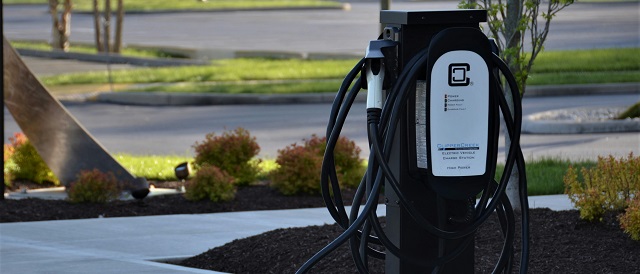
 From the Daily Caller News Foundation
From the Daily Caller News Foundation
By WILL KESSLER
Converting America’s medium- and heavy-duty trucks to electric vehicles (EV) in accordance with goals from the Biden administration would add massive costs to commercial trucking, according to a new analysis released Wednesday.
The cost to switch over to light-duty EVs like a transit van would equate to a 5% increase in costs per year while switching over medium- and heavy-duty trucks would add up to 114% in costs per year to already struggling businesses, according to a report from transportation and logistics company Ryder Systems. The Biden administration, in an effort to facilitate a transition to EVs, finalized new emission standards in March that would require a huge number of heavy-duty vehicles to be electric or zero-emission by 2032 and has created a plan to roll out charging infrastructure across the country.
“There are specific applications where EV adoption makes sense today, but the use cases are still limited,” Karen Jones, executive vice president at Ryder, said in an accompanying press release. “Yet we’re facing regulations aimed at accelerating broader EV adoption when the technology and infrastructure are still developing. Until the gap in TCT for heavier-duty vehicles is narrowed or closed, we cannot expect many companies to make the transition, and, if required to convert in today’s market, we face more supply chain disruptions, transportation cost increases, and additional inflationary pressure.”
Due to the increase in costs for businesses, the potential inflationary impact on the entire economy per year is between 0.5% and 1%, according to the report. Inflation is already elevated, measuring 3.5% year-over-year in March, far from the Federal Reserve’s 2% target.
Increased expense projections differ by state, with class 8 heavy-duty trucks costing 94% more per year in California compared to traditional trucks, due largely to a 501% increase in equipment costs, while cost savings on fuel only amounted to 52%. In Georgia, costs would be 114% higher due to higher equipment costs, labor costs, a smaller payload capacity and more.
The EPA also recently finalized rules mandating that 67% of all light-duty vehicles sold after 2032 be electric or hybrid. Around $1 billion from the Inflation Reduction Act has already been designated to be used by subnational governments in the U.S. to replace some heavy-duty vehicles with EVs, like delivery trucks or school buses.
The Biden administration has also had trouble expanding EV charging infrastructure across the country, despite allotting $7.5 billion for chargers in 2021. Current charging infrastructure frequently has issues operating properly, adding to fears of “range anxiety,” where EV owners worry they will become stranded without a charger.
Business
When politicians gamble, taxpayers lose

From the Canadian Taxpayers Federation
Author: Jay Goldberg
Trudeau and Ford bragged about how a $5 billion giveaway to Honda is going to generate 1,000 jobs. In case you’re thinking of doing the math, that’s $5 million per job.
Politicians are rolling the dice on the electric vehicle industry with your money.
If they bet wrong, and there’s a good chance they have, hardworking Canadians will be left holding the bag.
Prime Minister Justin Trudeau and Premier Doug Ford announced a $5-billion agreement with Honda, giving another Fortune 500 automaker a huge wad of taxpayer cash.
Then Trudeau released a video on social media bragging about “betting big” on the electric vehicle industry in Canada. The “betting” part of Trudeau’s statement tells you everything you need to know about why this is a big mistake.
Governments should never “bet” with taxpayer money. That’s the reality of corporate welfare: when governments give taxpayer money to corporations with few strings attached, everyday Canadians are left hoping and praying that politicians put the chips on the right numbers.
And these are huge bets.
When Trudeau and Ford announced this latest giveaway to Honda, the amount of taxpayer cash promised to the electric vehicle sector reached $57 billion. That’s more than the federal government plans to spend on health care this year.
Governments should never gamble with taxpayer money and there are at least three key reasons why this Honda deal is a mistake.
First, governments haven’t even proven themselves capable of tracking how many jobs are created through their corporate welfare schemes.
Trudeau and Ford bragged about how a $5 billion giveaway to Honda is going to generate 1,000 jobs. In case you’re thinking of doing the math, that’s $5 million per job.
Five million dollars per job is already outrageous. But some recent reporting from the Globe and Mail shows why corporate welfare in general is a terrible idea.
The feds don’t even have a proper mechanism for verifying if jobs are actually created after handing corporations buckets of taxpayer cash. So, while 1,000 jobs are promised through the Honda deal, the government isn’t capable of confirming whether those measly 1,000 jobs will materialize.
Second, betting on the electric vehicle industry comes with risk.
Trudeau and Ford gave the Ford Motor Company nearly $600 million to retool a plant in Oakville to build electric cars instead of gasoline powered ones back in 2020. But just weeks ago, Ford announced plans to delay the conversion for another three years, citing slumping electric vehicle sales.
Look into Ford’s quarterly reports and the danger of betting on electric vehicles becomes clear as day: Ford’s EV branch lost $1.3 billion in the first quarter of 2024. Reports also show Ford lost $130,000 on every electric vehicle sold.
The decline of electric vehicle demand isn’t limited to Ford. In the United States, electric vehicle sales fell by 7.3 per cent between the last quarter of 2023 and the first quarter of 2024.
Even Tesla’s sales were down 13 per cent in the first quarter of this year compared to the first quarter of 2023.
A Bloomberg headline from early April read “Tesla’s sales miss by the most ever in brutal blow for EVs.”
There’s certainly a risk in betting on electric vehicles right now.
Third, there’s the question of opportunity cost. Imagine what else our governments could be doing with $57 billion?
For about the same amount of money, the federal government could suspend the federal sales tax for an entire year. The feds could also use $57 billion to double health-care spending or build 57 new hospitals.
The solution for creating jobs isn’t to hand a select few companies buckets of cash just to lure them to Canada. Politicians should be focusing on creating the right environment for any company, large or small, to grow without a government handout.
To do that, Canada must be more competitive with lower business taxes, less red tape and more affordable energy. That’s a real recipe for success that doesn’t involve gambling with taxpayer cash.
It’s time for our politicians to kick their corporate welfare addiction. Until they do, Canadians will be left paying the price.
-

 Energy2 days ago
Energy2 days agoU.S. EPA Unveils Carbon Dioxide Regulations That Could End Coal and Natural Gas Power Generation
-

 John Stossel2 days ago
John Stossel2 days agoThe Swamp Survived: Why Trump Failed to “Drain the Swamp”
-

 Automotive24 hours ago
Automotive24 hours agoNew Analysis Shows Just How Bad Electric Trucks Are For Business
-

 Alberta Sports Hall of Fame and Museum22 hours ago
Alberta Sports Hall of Fame and Museum22 hours agoTHE HALFTIME REPORT News from the Alberta Sports Hall of Fame
-

 COVID-1921 hours ago
COVID-1921 hours agoQuebec microbiology professor fired for his public opposition to COVID shots
-

 Environment2 days ago
Environment2 days agoScientific Report Pours Cold Water On Major Talking Point Of Climate Activists
-
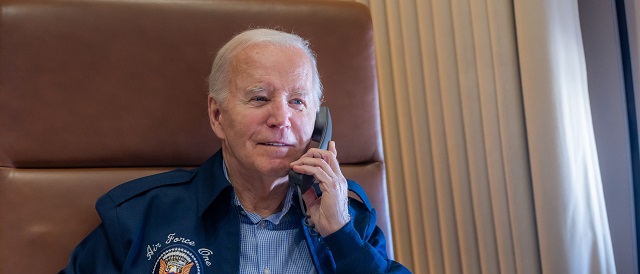
 conflict2 days ago
conflict2 days agoAmerica Is Really Bad At Foreign Interventions. Why Does Biden Think Ukraine Will Be Any Different?
-
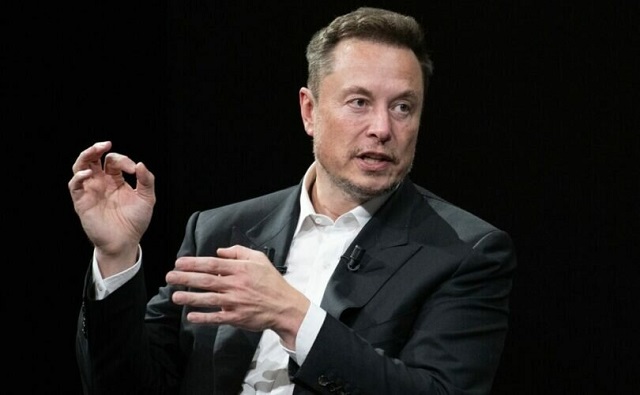
 COVID-1919 hours ago
COVID-1919 hours agoElon Musk’s X will help fund COVID shot critic’s ongoing legal battle against Canadian university

